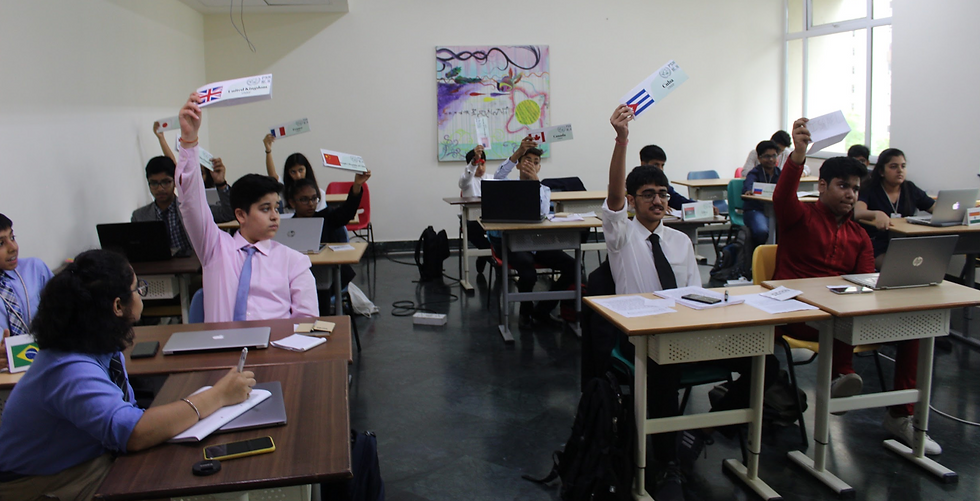Sustainable Cities
- International Press Team

- Aug 8, 2019
- 2 min read
By Press Trust of India
(Reporter- Rabhya Nanda, Photographer- Reva Sharma)
The United Nations Environment Programme consisted of 22 members in total. The second day of the conference started with a motion where the delegates requested to resume the general speaker's list beginning with the delegate of Brazil. The common idea shared in the GSL was about sustainable urbanisation. Working together and making a difference, caring about water usage, green fields, solar power and even contributing to other countries makes a big difference. Supporting development goals, sustaining environmental procedures, looking for better jobs, food, water and shelter, and also taking care of resources which require immediate attention were also pointed out.

Other environmental problems that were brought up were pollution due to transportation or industrial waste. For example, a lot of factories pollute our water bodies by excreting chemical waste. Furthermore, urbanisation is a major contributor to pollution. The poor live in villages and small towns which do not have a lot of vehicles or factories; so the poor have another challenge while shifting- they are not used to breathing the polluted air, which can give rise to severe illnesses that they cannot afford to heal without financial aid.

Soon after the GSL, the delegates passed a motion for an unmoderated caucus where they discussed a myriad topics they wanted to research and debate on. The important topic that came up was ‘how urbanisation impacts finance’.

Urban growth is expensive; many nations fail to afford it. Moving to cellular models will standardise a sustainable lifestyle. Many countries are looking forward to ensure long term economic and financial sustainability also known as ‘Smart Cities Mission’. But to create a smart city, it’s important for all countries to contribute for fundraising by the UN. Entrepreneurs are highly affected by this mission because they have to cut down the cost of production so that the government can make the fundraising more successful. Managing mortality, strong GDP growth, food, agricultural and ecological practices, new challenges and biodiversity, technology and chemicals were other problems faced by many nations besides efficient effort. Power systems, preserving non renewable resources, food supply power, environment challenges, reduce reuse and recycle, reducing chemical fertilisers etc are also some of the factors which are important for our environment. Urbanisation also has its negative impacts such as declining ratio of food production, fewer sustainable food production, minimal usage of chemicals, technology talking up place and much more!

In the end, the committee ended the session with working papers which included points relating to sustainable and environment friendly cities, more jobs, rural development programme, using non- renewable resources in the right way, make sure all countries can revenue and develop further.





Comments